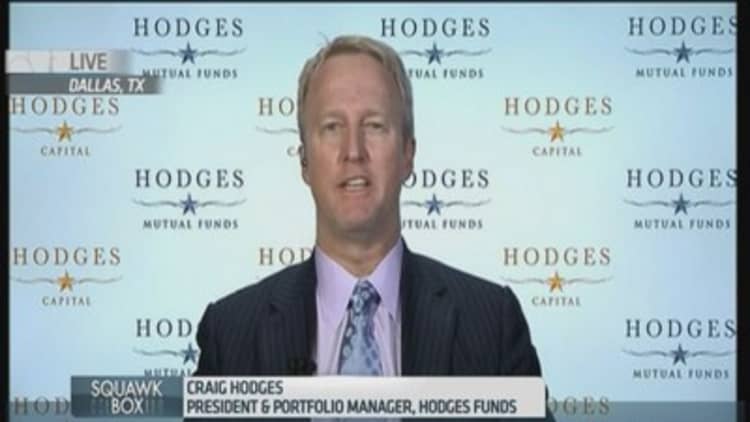A Republican-controlled Congress may find common ground with President Obama on a new Asian Pacific trade pact and could bring a more energy friendly environment to Washington.
There may also be plenty of talk about sweeping changes to tax law or fiscal reform, but analysts don't see much in the way of change on those fronts, nor do they expect progress on immigration.
"Grid lock or unlocked? I think grid lock," said Jack Ablin, CIO at BMO Capital Markets. "It's going to be a little more confrontational. Bills are going to end up on the president's desk, and he's going to have to decide whether to sign them or veto them. It's not quite as obfuscated as it once was. It's going to be a little more transparent."
Market reaction
Stocks were subdued Tuesday, but the market could get a lift Wednesday after Republicans wrested control of the Senate from Democrats with at least 52 seats.
The post mid-term election period is historically positive for stocks, and a Republican victory would be positive for the overall market.
"I wish the market wasn't as expensive is as it is. To me, that's the only headwind the market faces," said Ablin.

Read MoreStock market predicting not just a GOP win, but a 'wave'
Beneficiaries
Dan Clifton, head of policy research at Strategas, expects some sectors to clearly benefit from the election, and the market as a whole to rise if history is a guide. He notes the S&P 500 has not declined in the 12 months following a midterm election since 1946.
One of the biggest undertakings of the new Congress could be to pass the Trans-Pacific Partnership, which was opposed by many Democrats but favored by the White House. The pact would include Japan and other Asian countries as well as Pacific Rim partners, like Chile.
It would give the United States more free trade markets and the beneficiaries could be liquefied natural gas companies because more gas hungry Asian markets would be open for U.S. exports. Clifton said chemical companies are also big supporters of the trade legislation, but it's opposed by the auto industry.
Read MoreLive: Election 2014—Will the GOP take the Senate?
Clifton expects the energy sector to benefit, with Republicans pushing a fast track approach for new pipelines for the Northeast and also driving approval for the controversial Keystone Pipeline if the White House does not approve it. "The Republicans are replacing some of the Democrats who voted for it. On net, you're increasing the number of supporters that are already over 60," Clifton said. There could also be more focus on oil exports.
"The Republicans have to pick the three things they want to do. They're telling you Keystone is one of them. Policy gets done when there are catalysts," he said.
More active Congress
Clifton also expects a unified Congress to be more active than the split Congress, which let bills languish. He notes that Democrats were successful in 2007 when they selectively pushed issues at the end of the Bush Administration, including the minimum wage and student loans.

Read MoreJack Welch to GOP: Run a real conservative in 2016
Senate Republicans will be limited in what they can get done because they lack the 60-seat super majority needed to make changes to things like the Affordable Care Act or banking reform legislation. But analysts said they could try to get Democratic allies to help get rid of the medical devices tax, which was created to help pay for Obamacare.
Analysts say defense companies could also get a boost, as the Republicans may also be more interested in ending the Pentagon sequester.
Republicans are expected to make a push for tax reform right away, but they disagree with the president's view that it should raise tax revenues and no progress is expected.
Read MoreThree things you need to know about this election
Citigroup economists expect political pressures from the 2016 Presidential election cycle-beginning immediately - to stymie any ability to create a medium-term fiscal plan or any action to slow entitlement growth. "We anticipate any upcoming legislation during the President's 'lame duck' years likely would be limited to ad-hoc measure to prevent unintended fiscal drag," they wrote.


